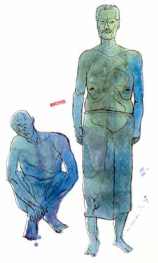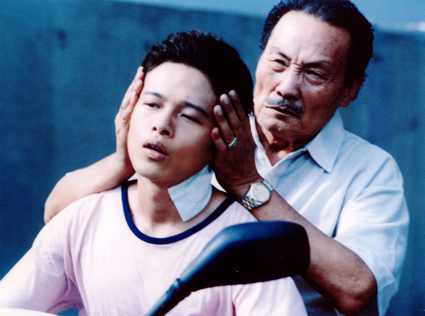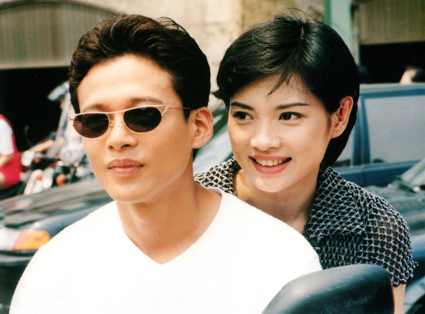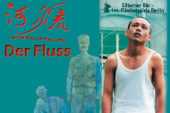
 |
|
In einer Wohnung in Taipeh lebt Xiao-kang mit seinen Eltern. Viel haben sie nicht gemeinsam, alle drei gehen ihre eigenen Wege. Sein Vater arbeitet nicht mehr und verbringt seine Zeit damit, in den unzähligen Saunas der Stadt jungen Männern nachzuspüren. In den schmalen, kaum beleuchteten Räumen sucht er Trost und jagt einer Illusion von Freundschaft hinterher. Was er findet, sind flüchtige Kontakte. Xiao-kangs Mutter ist die Fahrstuhlführerin eines Restaurants. Für sie dreht sich alles darum, das Essen für Mann und Sohn, aber auch für ihren Liebhaber auf den Tisch zu bringen. Ihr Geliebter handelt mit Porno-Videos und ist oft unterwegs.
Es beginnt eine Odyssee zu zahlreichen Ärzten und Heilern. Niemand kann ihm helfen. Dann stellt sich heraus, daß die Decke im Zimmer des Vaters undicht ist. Es tropft und tropft, nicht einmal der gerufene Klempner kann die Ursache ausfindig machen. Xiao-kangs Zustand verschlechtert sich. Auf der Suche nach einem Wunderheiler reisen Vater und Sohn gemeinsam in den Süden. Nachdem sie ein Hotel gefunden haben, begibt sich der Vater auf die Suche nach einer Sauna. Auch Xiao-kang sucht eine Sauna auf, und zufällig begegnet er dort seinem Vater. Zu Hause nimmt sich die Mutter vor, die Quelle des Lecks ausfindig zu machen. Während es draußen gewittert und stürmt, bricht sie die leerstehende Wohnung über ihrer eigenen auf. ...
CHEN: THE RIVER is your third film. The way it is constructed makes it look a lot like a sequel of REBELS OF THE NEON GOD? TSAI: My films map the joumey through life of one character, Xiao-kang. Personally, I would rather see it as a sequel of Vive L 'amour. The River projects the growth and chronicles the experience of this one character. In each of my three films, Xiao-kang confronts new problems and experiences new mood shifts. I consider all three Xiao-kang 's films. CHEN: But you 've also resurrected two characters, father and mother (played by Miao Tien and Lu Hsiao-ling, respectively), from REBELS. Construction-wise, I think it precedes The River. TSAI: This time I set out to play up the family element. When I outlined a background study for VIVE characters, I meant to give Xiao-kang a home, which could very well be the one illustrated in REBELS, a home he hardly ever visits, a home he definitely detests. In The River, family element resurfaces. He harbors no love for his family. He has no intention to go home. He only does it because he is terribly sick, and once he is there, he is trapped. You can say that he is caught by a dilemma similar to his father's. The old man likes to hang out in places like gay sauna. The leak is just one more incentive that drives him away from home. Now, come think about it, Xiao-kang's mother doesn 't seem to like her home very much, either. The apartment that houses the family serves merely as a symbol. The River focuses on the family and probes into its problems to see what have happened. What drives Xiao-kang away from his home, where he is forced to return and confronts many ghosts of his past and present. CHEN: Looming big and imposing in The River, as well as REBELS and VIVE, is a metropolis, Taipei in this case. I remembered when you first told me the story, Tamsui River (a river bordering northern part of Taipei) plays a key role. This element is all but disappears by the time you finished the film. Tell me a little more about how you developed the screenplay? TSAI: Early on, I was going to tell the story, in part, with a documentary style. It was meant to magnify the symbolic meanings of the polluted river. Life is like a river. The further we travel down the river of life, we face more and more dilemmas coming from a more deteriorating environment. But, I don't want to make it into a film about environment protection . . The inspiration of The River came from All Corners of the Sea, a TV drama I did years ago. There was this one scene, an extra was shoved into a river by one child actor. He accidentally swallowed some water, and got sick for a couple of days. A real-life story. I left the scene on the editing floor. The extra, a school buddy of mine, was really pissed. And since, strange as it is, I have had this compelling urge to base a film on this simple story. All my films invariably focus on social issues, scrutinizing many changes sprouted out at us because of economical prosperity and environmental degradation. The River is it, and so are REBELS and VIVE . I have always wanted to probe deeper into the roots of humanity. While shooting The River, I kept reminding myself to probe into the deeper, the darker half of ourselves. We don't always live happily ever after. Look around, our city is growing fast. Materialism boosts human greed to an unglorious height. We have everything we ever wanted, yet there is something lurking in the dark to keep us from being really happy. There is one scene in this film that, no matter how hard I have tried, I can't write it off or edit it out. A very early shot of father whiling away in a dark sauna suite. It is an echo of the river. If life is like a river, a part of it will always be darkly swirling and unfantomly deep. There will always be some dark and damp corners for the father to coop up. These are the images I want.
CHEN: Water in your films carries loads or message. Is it a symbol or sensuality? TSAI: Water doesn't necessarily stand for sensuality. Different people interpret it differently. It could also mean disasters, or life itself. Water in REBELS stands for multilevel of feeling. It may flow freely. It may be stagnant. You need it so badly, yet are sometimes in awe of it. Water in The River stands for desires. It overflows, causing troubles. The leak happens at the same time Xiao-kang taken ill. It corners both father and son and forces them to confront and solve their problems.The father and son, though acting like total strangers, are chips from the same block. The young man played by Chen Chao-jung was posted as an intruder. All three take to looking into mirror. The mirror image brings out the similarity in these three characters . The strange neck problem of Xiao-kang is not triggered by his dip in the dirty river water. It is a projection of his rebellion. Psychologically, Xiao-kang rejects the water. Next room, his father doesn't reject the water. The old man merely sets up a barrier to block off the water. Xiao-kang doesn't let his neck problem stop his day-dream like drifting. He keeps moving around until he arrives at the last scene and opens up the window. This character is created to serves different purposes in each of my films. He kissed Chen Chao-jung in VIVE, opens a window in The River. There are hopes behind a kiss, an open window. CHEN: This character Xiao-kang, is it a projection or you? TSAI: This film is very complicated. Every character in this film is a projection of me. I wrote a little bit of me into each of them. I like all of them. I let them cry a little, wander off a little. In the final scene, Xiao-kang is made to walk away from the camera and then come back. I want you to sense that there is still some hope in this character. I like this character very much . (by Rachel Chen, translated by Jean Yeh)
Xiao-kang . . . . . . . . . . . . . Lee Kang-sheng Vater . . . . . . . . . . . . . Miao Tien Mutter. . . . . . . . . . . . . . Lu Hsiao-ling Junger Mann . . . . . . . . . .Chen Chao-jung Xiao-kangs Liebschaft. . . . . . . . . . Chen Shiang-chyi Geliebter der Mutter . . . . . . . . . . . . Lu Shiao-lin Regisseurin . . . . . . . . . . . Anne Hui (als sie selbst) Verleih: Peripher - Filmverleih im fsk Kino Segitzdamm 2 - 10969 Berlin
|





